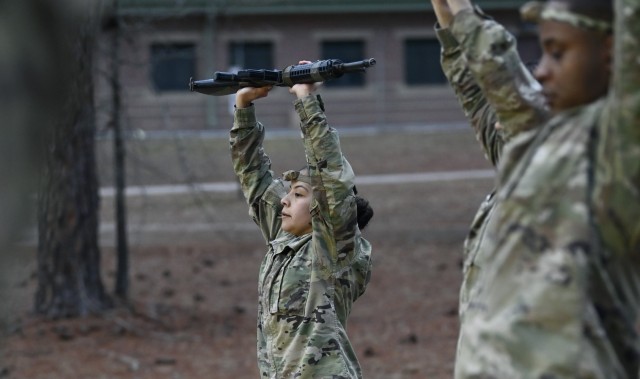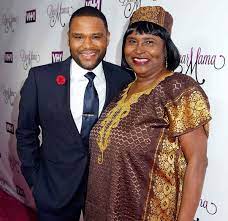USASOC Study Unveils Key Measures for Optimizing Female Soldiers’ Performance.

In an effort to overcome challenges encountered by female Soldiers within special operations units and to ensure the retention of top talent, Army Special Operations Command has presented 42 recommendations in a study released on Monday.
The study’s conclusions will serve as a blueprint for USASOC in enhancing the capabilities of female combatants, acknowledging their distinct physical and anatomical attributes.
USASOC Command Sgt. Maj. JoAnn Naumann emphasized, “The objective is not merely to make accommodations for women but to provide resources that empower women to optimize their performance and maintain their service across all ranks and over time.”
Throughout the year-long investigation, researchers discovered that 44% of the surveyed female Soldiers encountered difficulties in securing appropriately fitting equipment, including body armor, helmets, and ruck systems. Such challenges can hinder women’s capacity to execute fundamental Soldier tasks and maneuvers.
Additionally, the 106-page report titled “Breaking Barriers: Women in Army Special Operations Forces” revealed that female Soldiers expressed concerns about the impact of pregnancy planning on their careers. Many had to strategically time their pregnancies around career milestones or, in some cases, decided to postpone pregnancy entirely to prevent career setbacks.
Researchers conducted over 40 focus groups and interviews encompassing both women and men from various sections of the military. The study delved into several key areas, including equipment fitting, childcare, gender bias, social support, sexual harassment, pregnancy and postpartum experiences, as well as morale and overall well-being. Retired Lt. Gen. Francis Beaudette, former USASOC commander, initiated this comprehensive study in 2021, which drew participation from over 5,000 respondents. Furthermore, the survey addressed additional concerns, such as the unique challenges faced by smaller-statured Soldiers and access to healthcare.
The research also explored attitudes toward females serving in combat and special operations units. Survey results indicated that Soldiers held favorable views regarding women’s participation in special operations units, with no reported decrease in morale. Approximately 72% of women and 64% of men surveyed expressed their support for their daughters joining Army special operations units.

The study’s results revealed that 80% of male participants indicated that gender-related issues did not influence their choice to continue serving in special operations forces. Notably, researchers observed that the majority of gender-biased remarks and perspectives encountered in the study were attributed to senior non-commissioned officers (NCOs), pointing to a divergence in generational viewpoints, as highlighted by Naumann.
“In spite of our disappointment with certain study findings and remarks,” wrote Lt. Gen. Jonathan Braga, USASOC commander, in the report’s introduction, “we are steadfast in our commitment to confronting these issues with openness and transparency.”
Braga further emphasized, “Transforming culture is a gradual process. We need to improve – it’s a necessity for us to evolve and excel.”
The Women in ARSOF Initiative has delineated three primary areas of focus to tackle the challenges at hand: mentorship and sponsorship, health and readiness, and modernization.
Regarding mentorship and sponsorship, Lt. Col. Rachel Cepis, the director of the Women in ARSOF Initiative, emphasized the importance of fostering a “culture of excellence” within units through education and accountability. To illustrate, the Army could organize additional educational forums to educate Soldiers on effectively managing duties while considering factors such as breastfeeding or addressing postpartum issues. These forums can also cover topics related to women’s health and nutrition.

Respondents who had experienced childbirth outlined the primary five postpartum difficulties as follows: (1) grappling with depression, stress, and anxiety, (2) facing challenges in matching the performance levels of their unit, (3) managing lactation, (4) addressing issues related to maternity leave, and (5) dealing with diastasis recti abdominus.
Participants in the focus groups shared their struggles in locating suitable care during and after pregnancy. Additionally, Soldiers expressed apprehensions regarding how pregnancy might impede their career advancement, the availability of adequate spaces for breastfeeding, and the need for sufficient convalescent leave following miscarriages.
The 10th Special Forces Group stationed at Fort Carson, Colorado, initiated a mentorship program specifically designed for female Soldiers. Simultaneously, the 3rd Special Forces Group and the 528th Sustainment Brigade, located at Fort Liberty, North Carolina, are in the planning stages to establish similar mentorship programs at each battalion headquarters. Additionally, the 528th Sustainment Brigade organizes monthly engagements for female Soldiers.
“We’re taking a comprehensive approach to this,” said Cepis, expressing her enthusiasm for witnessing the development of women in various roles within their formation. She added, “I’m excited that we are exploring avenues to assist them in achieving their utmost potential.”

“It’s all about instigating change and ultimately enhancing the capabilities of ARSOF and the [Defense Department],” she emphasized.
In the second area of focus, centered on health and readiness, USASOC collaborated with the Army Research Institute of Environmental Medicine in Natick, Massachusetts, to examine physiological, metabolic, and psychological responses during and after rigorous and prolonged training. USASOC has also submitted four research topics to the Defense Advisory Committee on Women in the Services’ 2024 research solicitation. These topics encompass women’s physical and physiological attributes among elite female warfighters, the effects of pregnancy and postpartum phases on readiness, the short and long-term consequences of intentional dehydration, and the hormonal adaptations of female warfighters.
Cepis noted that USASOC is collaborating with the Army, SOCOM, and academic partners to investigate the impact of menstrual cycles on female warfighters and strategies to optimize their performance. Additionally, USASOC intends to delve into the health issues and illnesses that women may encounter in the field and explore methods to prevent musculoskeletal injuries linked to anatomical distinctions among females.
Regarding modernization, the study acknowledges the distinct anatomical and anthropometric variations between men and women. The Army Combat Capabilities Development Command (DEVCOM) at Aberdeen Proving Ground, Maryland, is slated to modernize dress and duty uniforms, along with body armor, to ensure a better fit for individuals with diverse body types and sizes.
USASOC has conducted preliminary user evaluations involving the Army Modular Scalable Body Armor, a flexible, adaptable bulletproof vest, as well as the Army Integrated Helmet Protection System. This comprehensive headgear comprises protective and securing components, a helmet cover, and hearing protection.
The Women in ARSOF Director has collaborated with DEVCOM to enhance the development of various items, spanning from specialized uniforms for pregnant female service members to urinary devices designed for females.
USASOC established the Women in ARSOF Initiative with the specific aim of addressing challenges related to modernization for female service members while providing guidance to senior leaders in the Army and Special Operations Forces (SOF). Additionally, ARSOF has initiated the release of a series of newsletters, introduced an online platform, and developed a portal site to ensure Soldiers are well-informed about the study’s findings and ongoing initiatives.
One Soldier, who has served in special operations forces for five years and has a career spanning 25 years, expressed their sentiment, saying, “I have never felt as acknowledged and comprehended in my career as I have since the publication of [the newsletter].”
USASOC, headquartered at Fort Liberty, North Carolina, is responsible for the training, equipping, and education of special operations units, providing support to the joint force.



